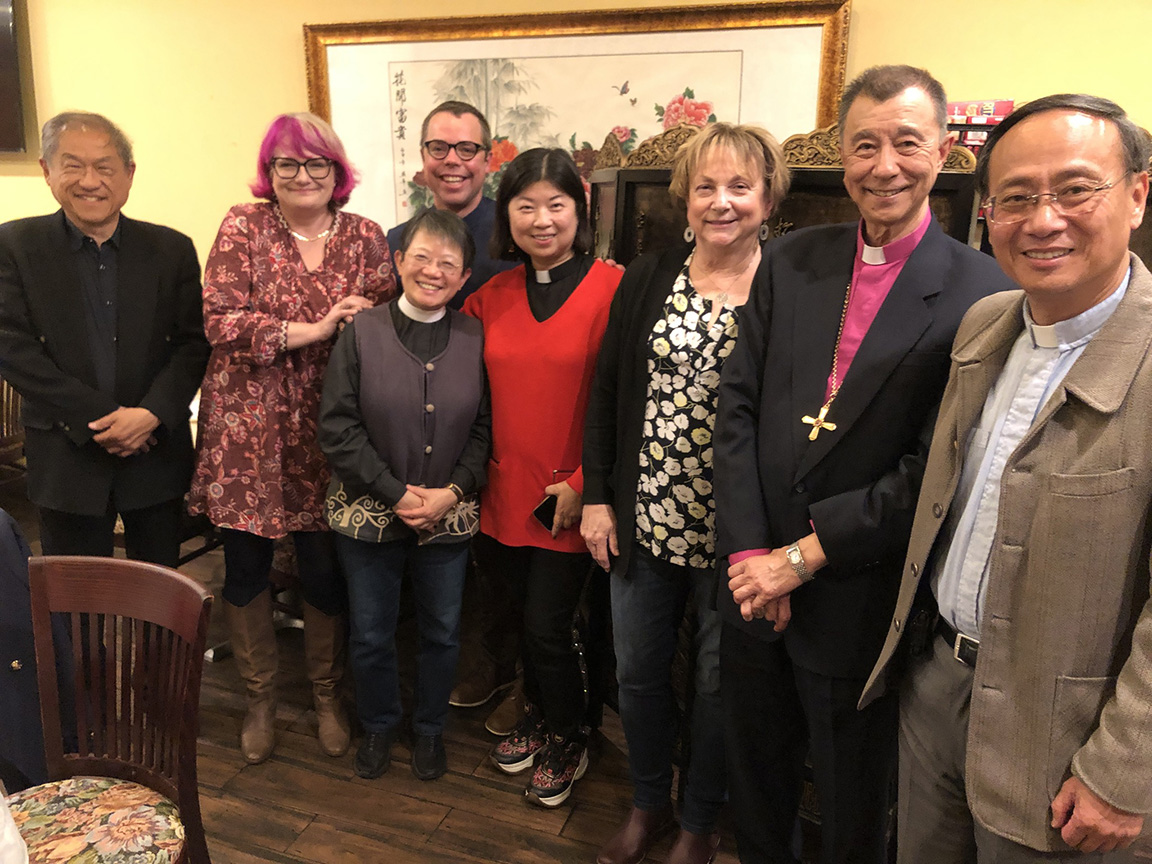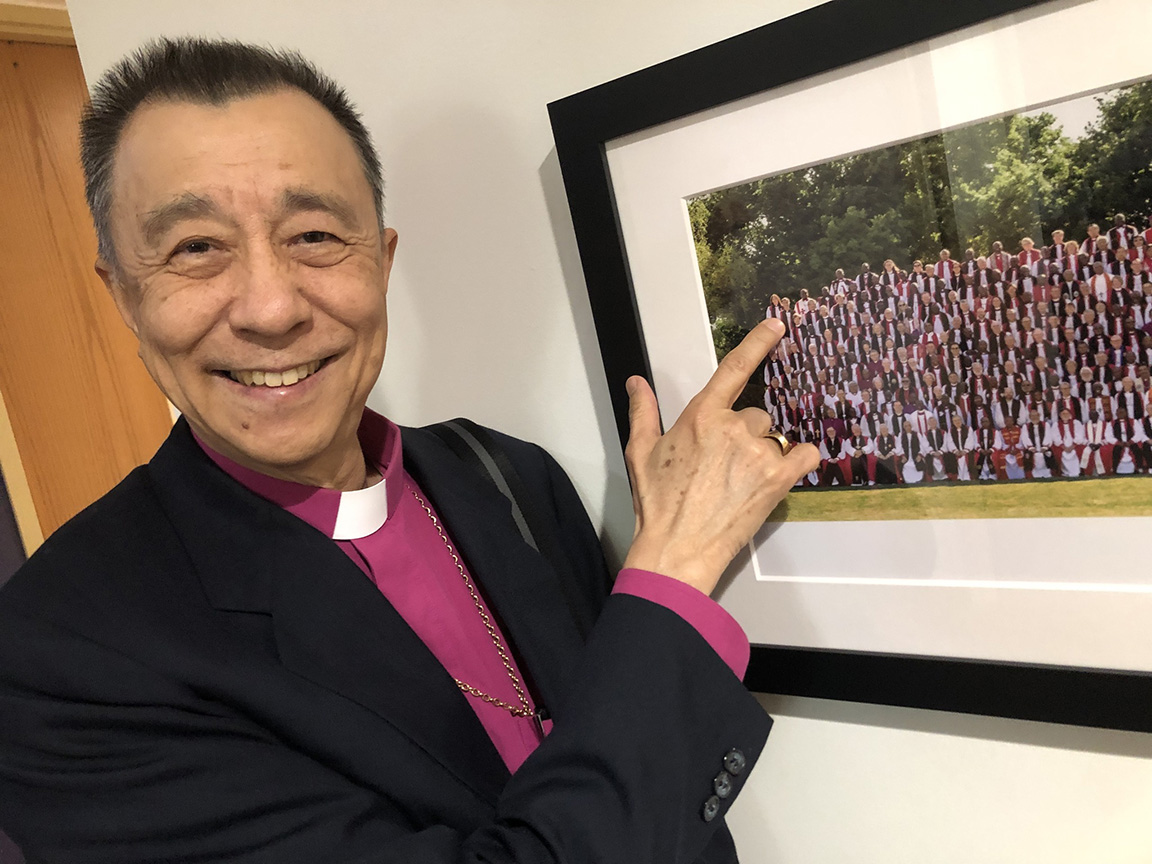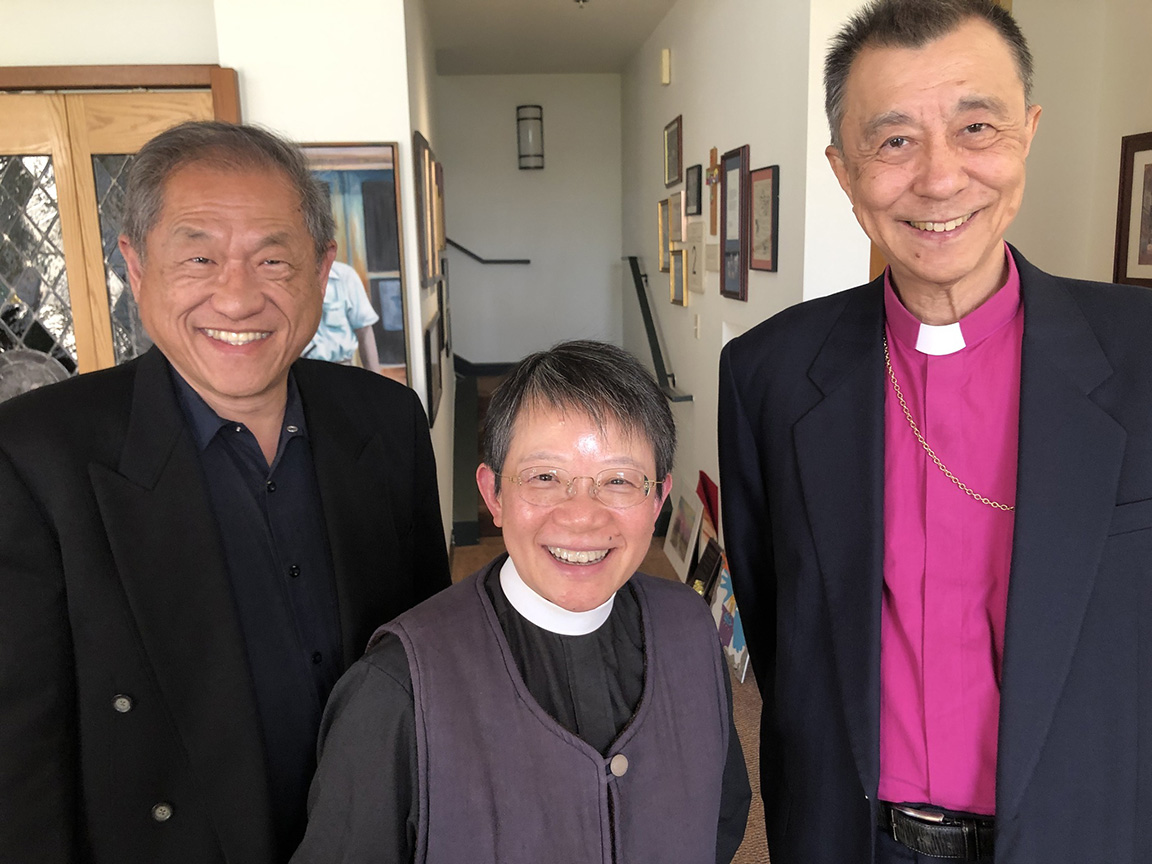

With apologies to Karl Barth, Anglicans and Episcopalians go out into the world with the gospel in one hand and a history book (or a phone for checking Wikipedia) in the other. For the Church of England, it was, of course, the British Reformation; for The Episcopal Church, the American Revolution.
For the Diocese of Taiwan, TEC’s easternmost diocese, the formative event was the Chinese communist revolution of 1949. The diocese began to take shape five years later, serving Taiwanese, Chinese Anglicans who had left the mainland, and U.S. military personnel and their families. Japan had ruled Taiwan from late in the 19th century until 1945. After World War II, local government officials turned churches previously owned by the Japanese Anglican Church over to other denominations. Rather than battle its fellow Christians to get them back, the new diocese decided to build churches of its own. Read more of the history here.
 Today the diocese comprises 15 congregations, including three being founded this year alone, serving about 1,000 congregants. On Friday, it was my blessing to spend the afternoon and evening with their devoted shepherd, the Rt. Rev. Dr. Lennon Chang, sixth bishop of Taiwan, who stopped off in Los Angeles en route to our spring House of Bishops meeting at Camp Allen in Texas.
Today the diocese comprises 15 congregations, including three being founded this year alone, serving about 1,000 congregants. On Friday, it was my blessing to spend the afternoon and evening with their devoted shepherd, the Rt. Rev. Dr. Lennon Chang, sixth bishop of Taiwan, who stopped off in Los Angeles en route to our spring House of Bishops meeting at Camp Allen in Texas.
We met first at St. Paul’s Commons, Echo Park. Accompanying the bishop were the Rev. Dr. Fennie Hsin-Fen Chang, vicar of St. Thomas Episcopal Church in Hacienda Heights, and the bishop’s friend since college, and his fellow engineering student, John Wu.
After locating his spot in the 2022 Lambeth Conference group photo, he and Mr. Wu, a devoted church chorister from Rowland Heights, headed off for a quick tour of Our Lady of Angels Roman Catholic Cathedral in Los Angeles before meeting up with Fennie, the Rev. Dr. Thomas Ni, the Rev. Katherine Feng and the Rev. Jeffrey Stoller Thornberg, Canon Kathy Hannigan O’Connor, Hannah Riley, and me for a festive dinner in Arcadia. Fennie and Katherine head to Texas next week, too, to provide translation ministry for Bishop Chang. Over dinner, Kathy and I shared stories of working and traveling with former President Nixon, whose opening to mainland China in 1972 caused considerable anxiety in Taiwan.
Managing the tension that remains requires the coolest heads possible in Beijing, Taipei, and Washington, D.C. Amid the fellowship, as we met and broke bread, we continued our work. World historic events help create our churches. Rising tensions over Taiwan’s freedom and security, and the potential that craven U.S. leaders might scapegoat our Chinese and Chinese-American neighbors, as they did during COVID, impels our churches to deepen our ties. It is up to the diplomats to keep the Taiwan Strait peaceful. But in Taiwan, the church is already beating swords into crosses. Bishop Chang presented me with a peace, love, and redemption cross fashioned from bits of the artillery shells with which China pummeled Taiwan’s Kinmen Islands beginning in 1958.
Let us pray the guns stay relatively silent. In the meantime, we will do our work of peace. Thanks to Fennie’s leadership, in November our diocesan convention established a companion relationship with the Diocese of Taiwan, which this September will mark the 70th anniversary of its founding. Kathy and I have accepted Bishop Chang’s invitation to attend the celebration in Taipei, and he will pay a reciprocal visit to the Episcopal Diocese of Los Angeles in 2025. We’ll be working on collaborations in theological education, youth camp exchanges, church planting, and clergy and seminarian exchanges (leading, the bishop and I pray, to more lay and ordained leaders in our diocese learning Mandarin and Taiwanese and more Taiwanese ministers learning English — so stay tuned, Commission on Ministry!).


